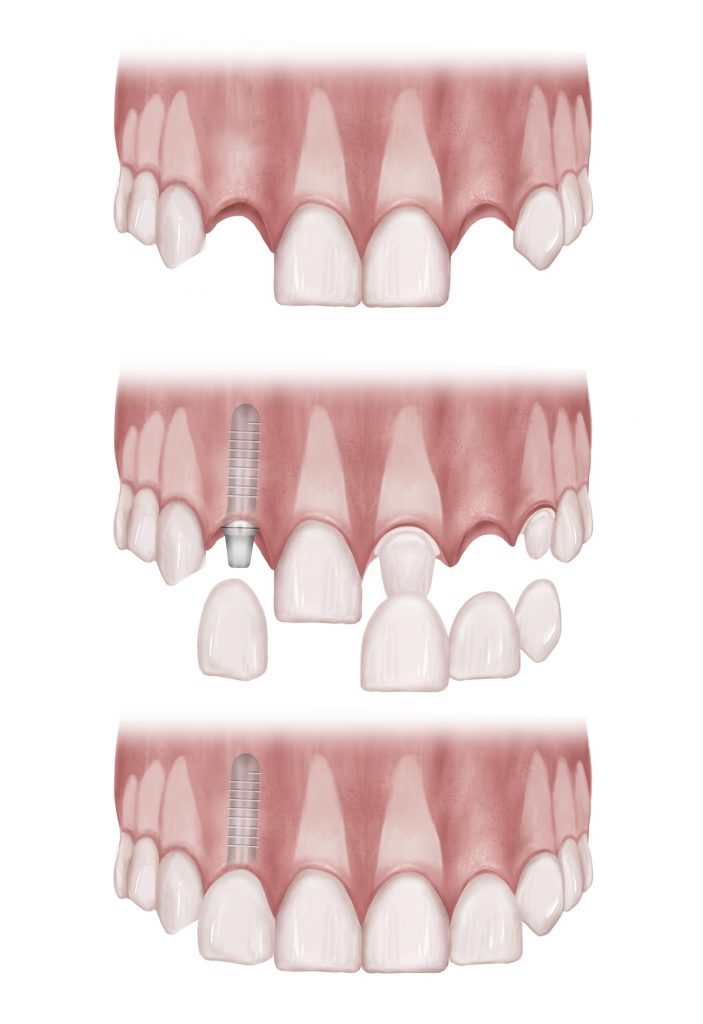Dental implant treatment is considered the preferred method of tooth replacement for a number of reasons. The relative importance of some of the benefits of dental implants varies for individual patients, such as superior long-term aesthetics, or relieving the pain of dentures that do not fit.
However, there are four critical facts that dentists and specialists consider each time they recommend dental implant treatment as the ideal option for patients with missing teeth.
- Dental implants prevent bone resorption (deterioration).
- Dental implants do not compromise the health of adjacent teeth.
- Dental implants have the best long-term prognosis and highest success rates.
- Dental implant treatment is the most cost effective treatment option.
Patients considering tooth replacement options should also factor these significant advantages of dental implant treatment into their decision, regardless of insurance restrictions and benefits. Relying on insurance benefits that cover bridges, but not dental implant treatment, to make a decision about treatment often results in treatment that is a compromise, or less than optimal.
Advantages of Dental Implant vs. Bridge

Advantages of Dental Implants
- Dental implant treatment is the only solution that preserves bone.
- Superior long-term esthetics by preventing a visible defect in the bone as a result of tooth loss.
- No compromise to the health of adjacent teeth.
- Dental implant restorations have a much better long-term prognosis
- The American Dental Association quotes a 10 year life span for bridges
- Documented clinical studies indicate success rates for implants of 95-98% for 20-50 years
Disadvantages of Bridges
- Long-term health of adjacent teeth is compromised by removing the enamel and placing additional forces on these teeth.
- Difficult to clean and the teeth are susceptible to decay, root canals and gum problems
- Bridges typically need to be replaced every ten years (average). Each time the bridge is replaced more tooth structure is removed.
- When bridges fail, additional teeth are often affected and more extensive treatment is usually necessary
Disadvantages of Dental Implants
- More planning time and treatment time required
- Treatment requires surgical procedure
Advantages of Bridges
- Less planning and treatment time involved
- No surgical procedure is required